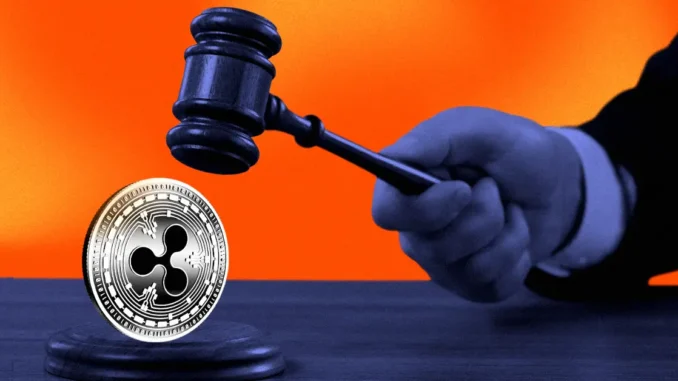
XRP, currently the seventh largest cryptocurrency by market capitalization, has experienced a remarkable surge in trading volumes over the past 24 hours, jumping by more than 40%. This uptick in trading comes on the heels of a new update regarding the Ripple-SEC lawsuit, which is currently in the appeals phase.
Just last week, the SEC announced that it would submit its principal brief in the ongoing appeals process by January 15, 2025. While this is happening ongoing discussions are happening on X by the legal community on XRP status here’s what the lawyers have to say on the whole speculations.
XRP’s Classification Horror Continues..
Right now XRP is passing the last leg of a legal battle over the classification of XRP as a security, with lawyer Bill Morgan and Social media users Joe Sho and James Farrell weighing in on the topic. Bill Morgan, known for his critical stance on the SEC’s arguments, counters a claim by Joe Sho, who suggests that the Appeals Court might label XRP as a security.
Joe Sho argues that an appeals court review, or “de novo” examination, disregards prior findings and could interpret XRP as an investment contract, in line with other crypto cases, such as Judge Rakoff’s recent ruling in the Terra case.
The Embodiment Theory vs. SEC’s Argument
Morgan’s take is more sophisticated than the random theory circulating in the crypto space, focusing on the “embodiment theory” and the notion of XRP as an asset rather than a security. He argues that Judge Torres’s ruling, which found XRP itself to not inherently be an investment contract, was appropriate because it distinguished between the asset and the transaction context.
He sees this approach as more coherent, even if it diverges from crypto caselaw or the SEC’s stance. The SEC, he notes, continues to argue that XRP’s lack of inherent value means any transaction involving it is an investment contract, particularly in the context of Ripple and possibly even broader secondary markets.
Implications of the Appeals Court Review
James Farrell adds to the complexity by noting that a “de novo” review allows the Appeals Court to adopt the “embodiment theory” or reinterpret XRP’s classification entirely. This means the court could follow Judge Rakoff’s lead from the Terra case, where assets like UST and LUNA were viewed as securities based on their use in investment contexts, challenging the initial district ruling on XRP.
While Morgan acknowledges the Appeals Court’s freedom to reevaluate, he believes that any shift towards considering XRP itself as a security would misinterpret the judge’s emphasis on the asset-versus-transaction distinction.
The outcome of this debate could set a major precedent for XRP and other cryptocurrencies, as it questions whether digital assets are inherently securities or only become such within specific transaction contexts. Are we moving in circles?




Be the first to comment